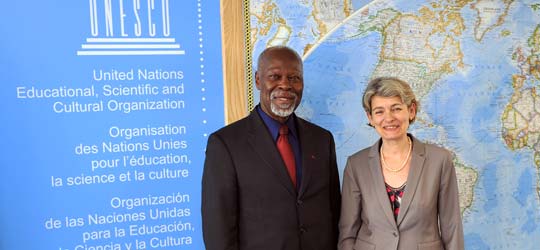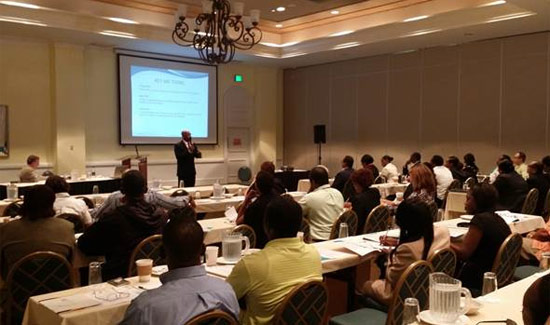
Dr. Davidson Hepburn, president of United Nations Educational, Scientific and Cultural Organisation (UNESCO), invited fellow Bahamians to take advantage of what he called “a once in a lifetime opportunity” to tap into a burgeoning global industry known as heritage tourism. The invitation comes while Hepburn is currently at the helm of the international body awarding expertise and major funding to signatory countries in areas ranging from education to communications.
“The Bahamas should be at the forefront of heritage tourism, yet sadly we are not a signatory to the heritage convention,” he said. “This is more important than ever because TripAdvisor.com recently introduced a site where you are able to click on links to UNESCO heritage sites. International travelers can book directly from those links, but to be listed as a recognised heritage site, you must be a signatory to the UNESCO heritage convention. So while we have fabulous heritage sites, they are not getting the exposure other lesser sites are because they are taking advantage of TripAdvisor’s recognition of the growing interest in heritage tourism while The Bahamas is not. The website is attracting huge attention.”
The cultural heritage travel niche is on the rise in various countries and can be a major contributor to an economy like The Bahamas’ which depends heavily on tourism for its revenue. By reviving and promoting historic culture as an important marketing tool to attract travelers with special interest in heritage and arts, the benefits can be significant. Heritage tourism, if promoted consistently and effectively, can help not only preserve the country’s heritage but also facilitate growth in The Bahamas’ primary industry, said Dr. Hepburn, who was elected president of the prestigious body in 2009 and has spent most of his time in Paris where it is headquartered. His comments came during a recent visit to Nassau.
The country, he said, is blessed with a rich heritage.
“The Bahamas has so many heritage sites, both tangible and intangible — the Blue Holes of Abaco and Andros, the world’s 3rd largest Great Barrier Reef, the Hermitage at Mt. Alvernia in Cat Island, the cultural heritage of Bahamian food, music, Junkanoo and yet we run the risk now of not only failing to benefit from financial grants and technical assistance but actually falling behind other countries who are benefitting from free advertising on TripAdvisor.com by means of their participation in the international UNESCO arena of documented sites.”
The pleas for active participation in the world body came from the man who is perhaps the country’s most internationally-recognized statesman. Dr. Hepburn served for 15 years in the United Nations before becoming the first representative from the English-speaking Caribbean to hold the post of president of the general conference of UNESCO, a United Nations body charged with overseeing and assisting developments in education, culture, science, technology and communications.
At conferences and meetings nearly 200 signatory countries or territories were represented and applications for grant money were reviewed. The Bahamas, he said, was notable for its absence. Another opportunity presents itself in January in Barbados, but to date The Bahamas is not registered for the conference.
“I have tried to understand why and I simply cannot. Countries all over the world are fighting to be part of UNESCO, they are competing for expertise and grants. They are benefitting from being signatories to one or more of the four major conventions,” said Dr. Hepburn. “I was at a conference in Trinidad & Tobago recently where people were begging for The Bahamas to join the effort. It was the same thing in Brasilia. Over a 10-day period, we reviewed applications for funding or technical assistance from 193 countries or territories. Some of them had more than one application, but there was not a single one from The Bahamas.”
Still, Dr. Hepburn hopes his message urging participation will be heard.
“When I became president of UNESCO, I made a promise that my legacy would be to ensure that all small developing countries have a voice in UNESCO and genuine pride in their heritage,” he said. “While the government is good enough to support my tenancy as president of the general convention, something for which I am extremely grateful, I sincerely hope that The Bahamas will soon become a signatory to the UNESCO conventions and begin to reap the rewards that nearly 200 other countries are already enjoying.”



